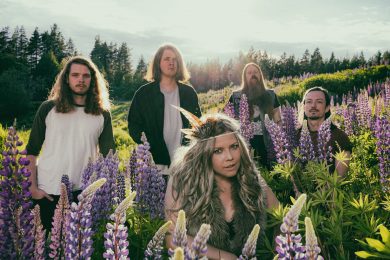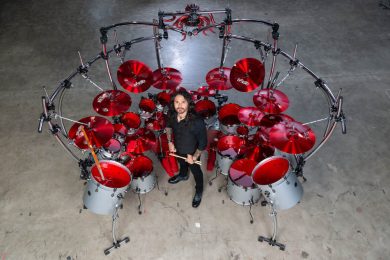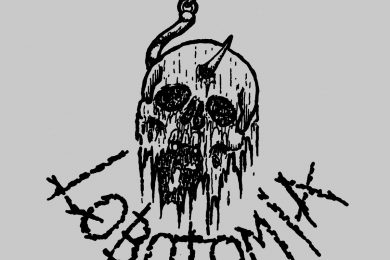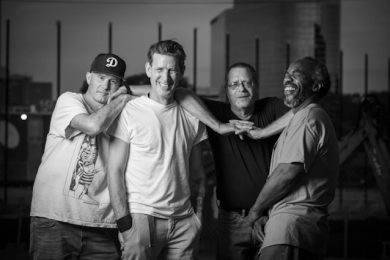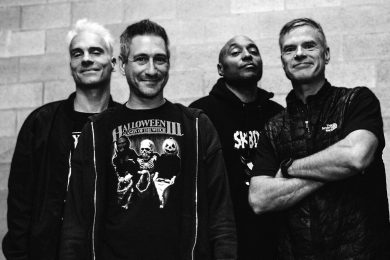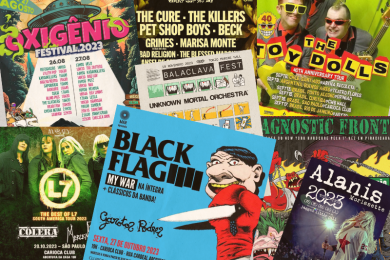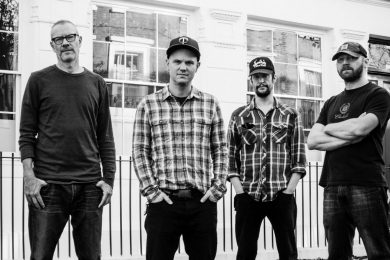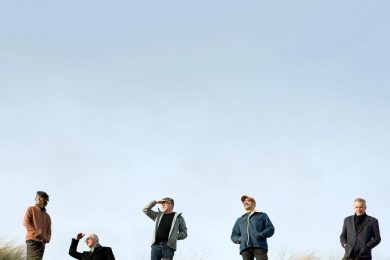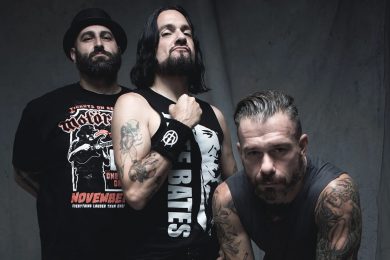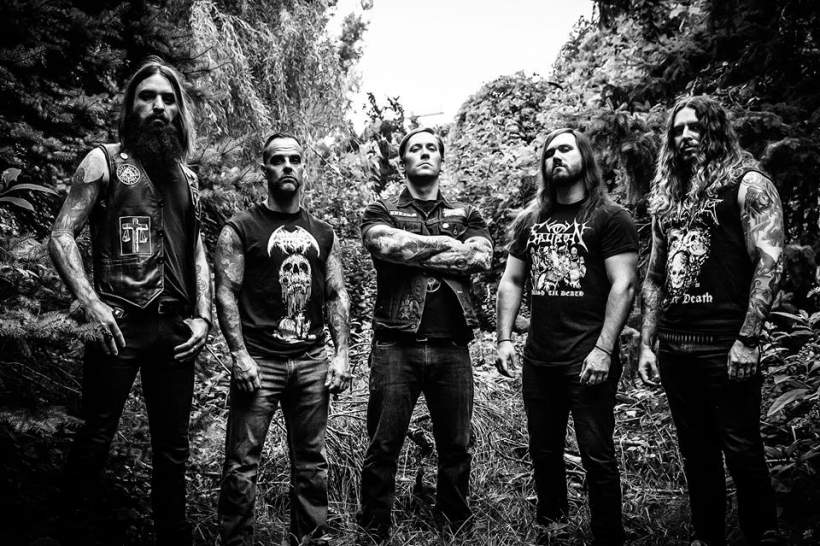
A good amount of bands have tried, along history, to make death and doom metal sound as one single entity – a justified ambition, as much as the idiosyncratic doom slowness brings even more effect to the bloodthirsty feeling that must come along with the death metal spirit. But Temple of Void jumps ahead of them all, because their mix of both styles is so tight that blurs the boundaries between the two – and The World That Was, their latest epic, shows us not only a group in absolute dominium of the formula that they have developed and improved themselves, but also ready to even bigger enterprises from now on. Guitar player Alex Awn tells us a thing or two about the record and the band, in this exclusive Monophono interview.
Monophono: Temple of Void is a band that, ever since its very beginning, has had a solid vision of its own musicianship and style. How this much personality has been developed so quickly?
Alex Awn: Right now, everyone in the band is in their 40’s, except for one of us. So Temple Of Void was a “late” band for us, so to speak. This meant we’ve all had plenty of years of experience doing bands to learn from. So, when we got together to start TOV, we were able to function at a high-level right from the start! We had a clear vision on what we wanted to do by the time we wrote our second song. We’ve stuck to that charter. We aim to be the best death–doom band on the planet.
Monophono: Many people like to revisit the “third record syndrome” tale from time to time, but it cannot be applied to the American death metal (Once Upon the Cross, The End Complete, Covenant, Spiritual Healing, to name a few). Has the third album brought any affliction to you, guys? Or were you confident enough not to be frightened?
Alex: I don’t think we really even considered it, to be honest. We just write what we want to write. “The World that” Was has been so well received, it’s crazy… Most people herald it as our best release yet. So, the ante is upped once again. But that doesn’t influence what we write for album 4. We just write what we like.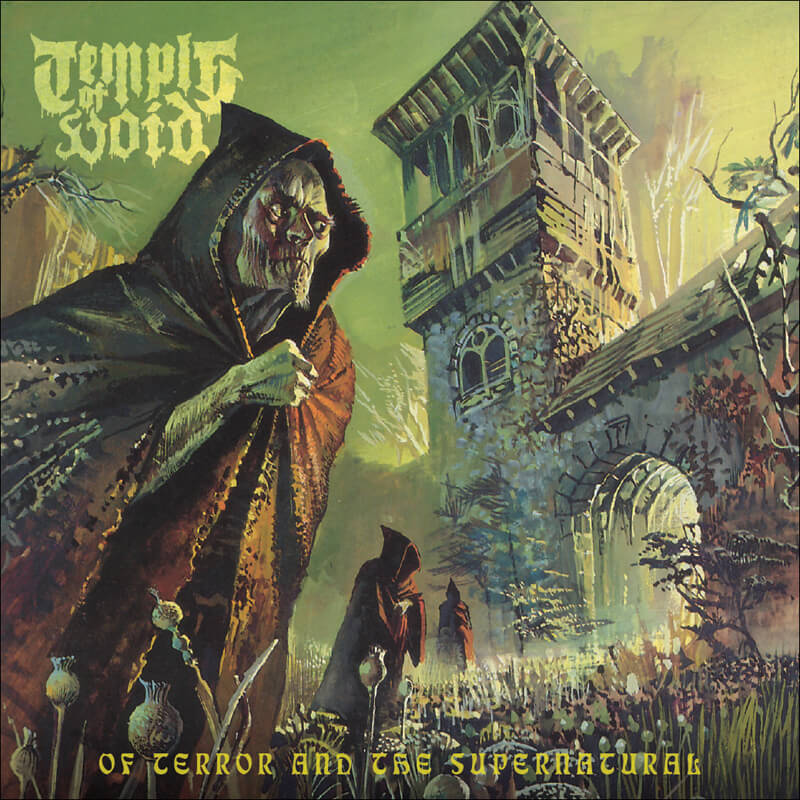
Monophono:Is Temple of Void the doomiest death band out there or the deathest doom band we’ve ever listened to?
Alex:(Laughs)Man, that’s a good question. Sometimes I think it’s the former, and sometimes it’s the latter. I think these days I would consider us a death metal band first and foremost, though. I used to think we were doom with death. But now I think of us as death with doom. Ask me next week and my answer might change (laughs).
Monophono: The World That Was shows again that you guys are an extremely meticulous band, very demanding on your own material. Is that right? Is perfectionism a blessing or a curse when it comes to writing death metal songs?
Alex: We take a lot of time to get things to a really high standard. But at a certain point you have to say that enough is enough and just ship the damn record (laughs). There are things in “The World That Was” that we would change. We definitely don’t strive for perfection. We don’t play to click-tracks or anything like that. We’re a very organic band. But we do aim to capture the best version of us that we can, without going over the top. There has to be feeling and atmosphere. We were talking about it last night, actually. There are mistakes even on Led Zeppelin records! But who cares? It’s raw. It’s real.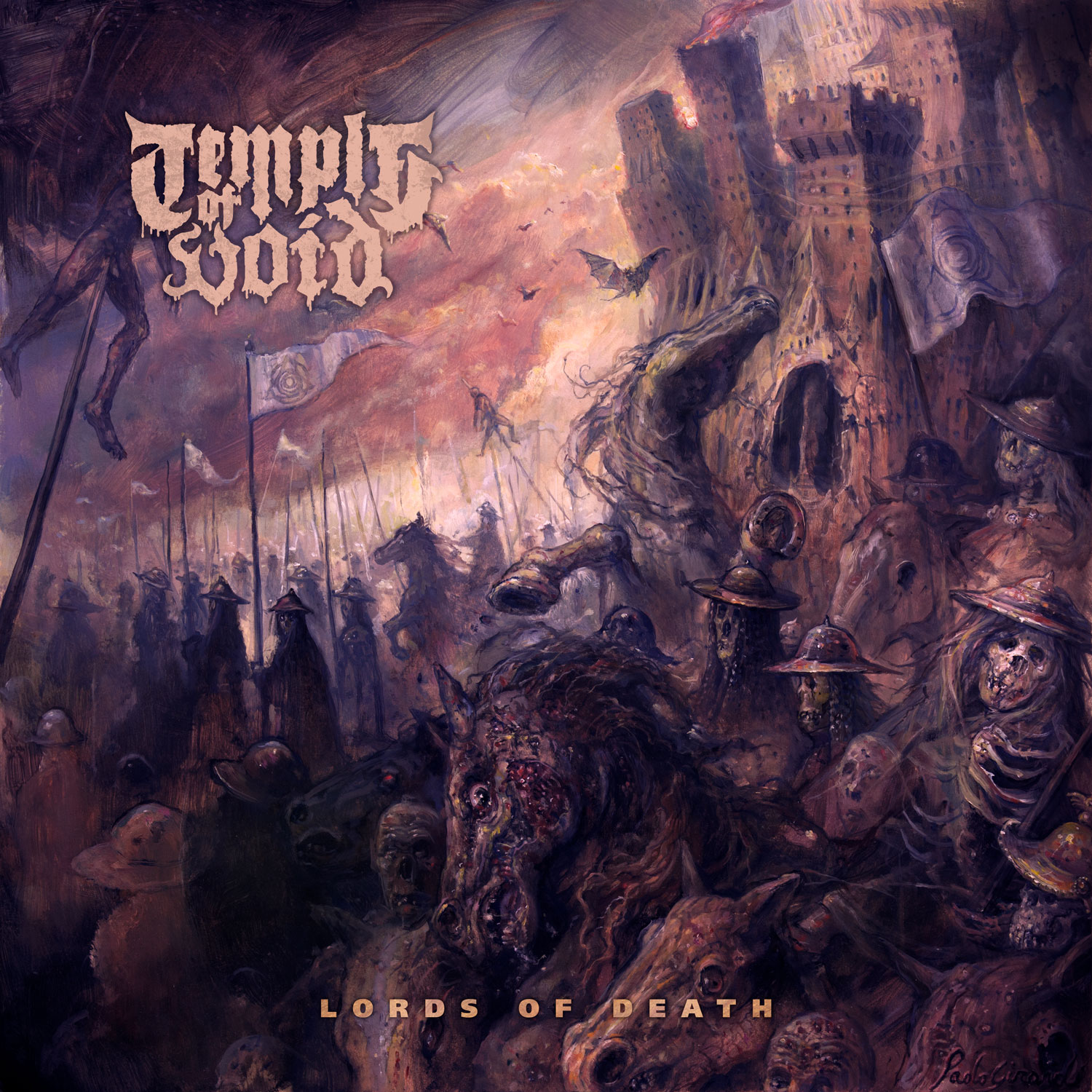
Monophono: There’s an epic feeling in every single one of Temple of Void’s notes, but there’s also a strong sense of melancholy – that all always sounding harsh and oppressive. Managing this alchemy, in which resides the Temple of Void’s magic touch, is that as hard as it seems?
Alex: Alchemy is a good word for it. There’s a certain sense of atmosphere to our music that you can’t teach or fake. Atmosphere is a product of a lot of different aspects of songwriting – and part of it probably just comes from our gut. I wouldn’t say it’s hard for us, but I would say we take our songcraft very seriously. We revisit our songs over and over until we’ve really crafted something we’re all super proud of. Every riff has to be just right and just in the right place. It’s not perfectionism, though. We don’t overwork anything. I don’t think too hard about the riffs. We just strike a really good balance of attention to detail and patience in our songwriting.
Monophono: Lyrically, Temple of Void has always seemed to focus on the “other side” of life, on the unbelievable and the unexpected… The new album resumes these same themes, or are there any new elements on the topics?
Alex: Mike is best suited to answer this as he is the band lyricist. However, I’d say Mike took a more introspective view on this album, as well as a more worldly view. Our prior albums featured a lot of storytelling based on various mythos, books, or movies. This album looks within and looks at death in a more existential manner. I don’t want to get too deep into it as it’s really something that Mike could elaborate on more eloquently -but overall, I think Mike has looked more in the mirror for these lyrics than he had in the past. He’s a great storyteller, so he’s still able to take some of those personal aspects and weave great allegories out of them.
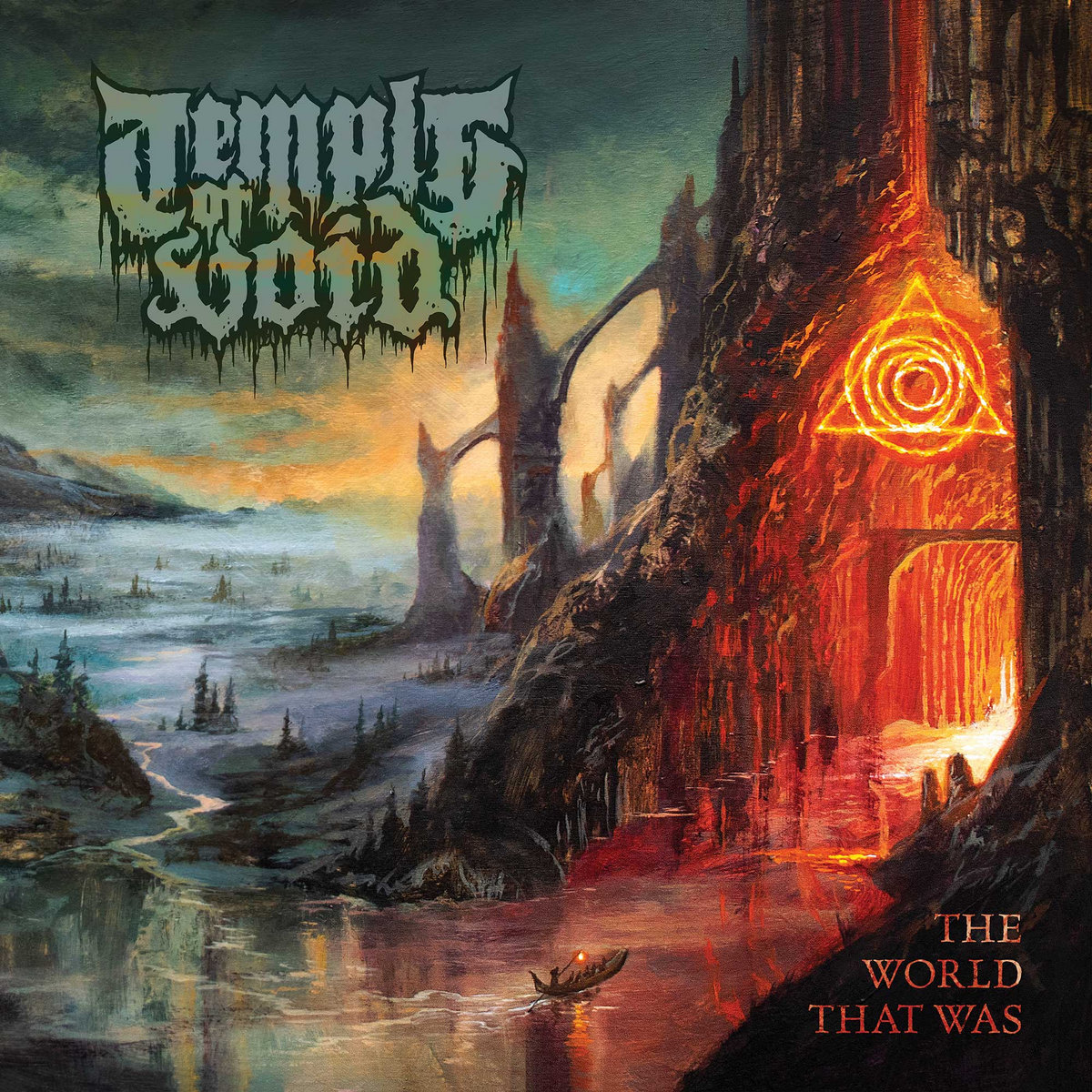
Monophono: The artwork of the three albums is remarkable. Tell us more about the The World That Was cover, and if you guys use the front paintings to complement the lyrics or to bring something new to the whole album concept.
Alex: We definitely wanted to take the listener on a journey with this record. That’s always our goal, but I think we really elevated the craft on this one. It’s the most immersive experience we’ve released. The cover has five souls on a small boat that’s being ferried down a river. The ferryman is based on Charon (the Greek mythology character), and that reference comes in to play with “Leave the Light Behind” and “A Single Obolus.” So, there’s a direct connection between that aspect and those songs. The boat is approaching this cavernous entry to a mountain. There’s an eldritch flaming Temple of Void sigil atop the mountain. What’s in the mountain? Let’s find out.
Monophono: Speaking of artwork, it must be fantastic to see those epic drawings in a vinyl front cover! In what way do the old black circles demand a different treatment than the CD releases?
Alex: Yeah, nothing looks better than a beautiful wrap-around painting on an LP. For sure! I’m not really sure how to answer this other than saying that I put a lot of time and attention into the layouts myself. Our visual presentation is really important to how the band is perceived and consumed by the audience.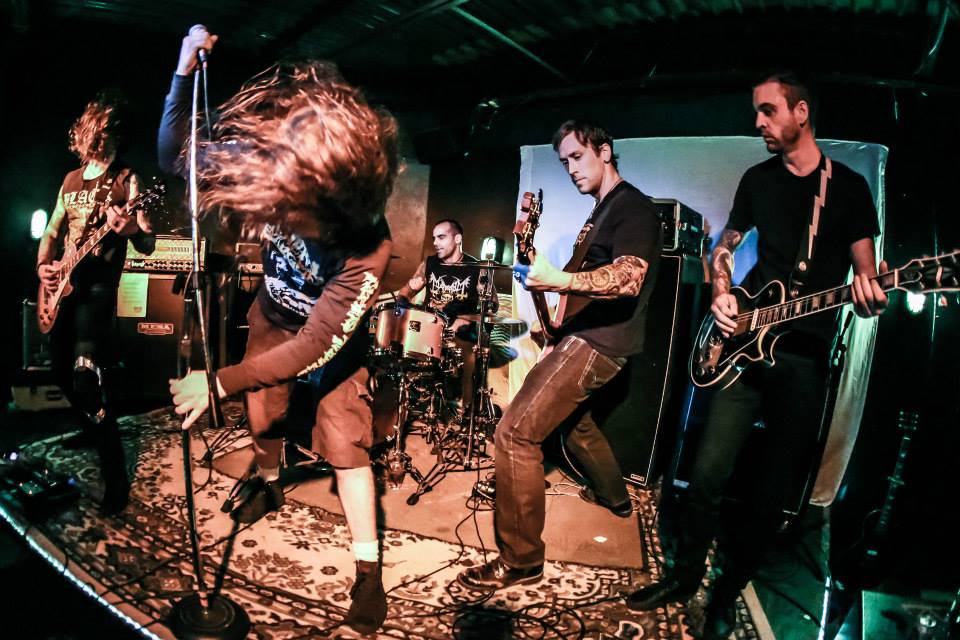
Monophono: You guys seem to have found a home in Shadow Kingdom. In what way do you feel that a label can make a difference for a band right now?
Alex: Shadow Kingdom did a really good job with promoting “The World that Was”, but we have found a new home for our next album. We’ve had a great time on SKR, but all good things must come to an end. And now we’re moving somewhere else – however, I can’t talk about that yet as it hasn’t been announced.
Monophono: Death metal is a monster that constantly redefines itself in the US territory, with Blood Incantation as the latest frontrunner of the genre. How Temple of Void sees itself in this new generation of American bands?
Alex: I don’t think we really ponder this too much. But I think “redefines” is a good word to use. I believe something that draws people to TOV is our unique sound. I believe we genre-blend in a way that nobody else really does, and people recognize and appreciate that. It kinda goes back to your question about “death with doom” or “doom with death”: we really strive for the best of both worlds. And how we achieve that by itself is probably innovative enough for us to stand out amongst our peers. Another thing that makes us different from a lot of death metal bands is that we’re not afraid of using more traditional song structures from time to time. Intro, verse, chorus, verse, chorus, etc. We don’t write a riff-salad. We write distinct, memorable songs, and people gravitate toward it. 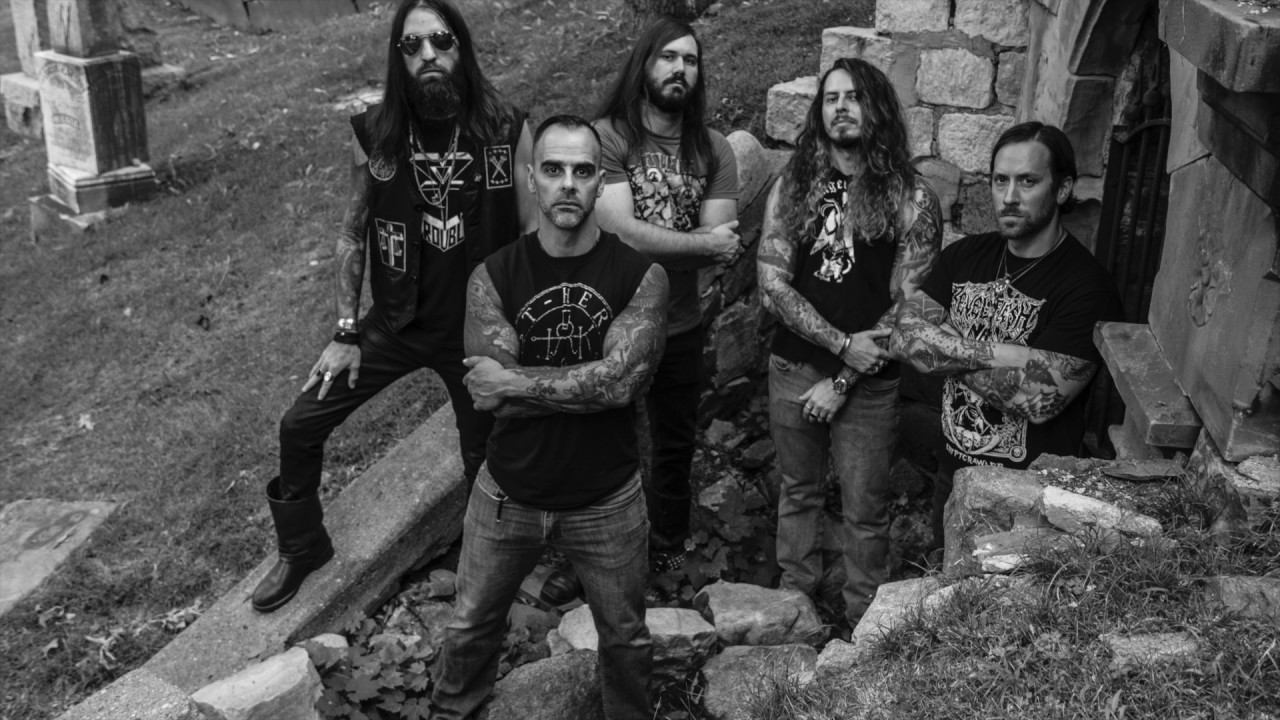
Monophono: Before the COVID-19 pandemic, did Temple of Void have a routine of live shows? Or do you guys prefer to work harder on the creative side of the band instead, composing and recording?
Alex: We took a year off of shows to write The World That Was. We were all set to promote it and then COVID-19 happened. So, we’re side-lined at the moment. However, we’re using all this downtime to work on album 4. We’re pretty much putting our foot on the gas, and you won’t have to wait another three years for the next one. We promise we’ll deliver it a lot faster this time around.
Monophono: Way back in 2015, Cianeto Discos released Of Terror and the Supernatural here in Brazil… Tell us how the response from our country to that record and Temple of Void’s work was.
Alex: Y’know, I wish we had a better connection to Brazil. It’s hard for us to have our finger on the pulse and really know how our record is received throughout the world. We don’t currently own the rights to “Lords Of Death” and “The World That Was”, so we can’t have Cianeto releasing them – or we would. We’ve always had labels from around the world putting our stuff out for us. Germany, Ukraine, Poland, Brazil, USA. We love underground support and we love a worldwide audience. Well, this has nothing to do with death metal, but every time I watch the Senna doc I cry. To me, Brazil is Senna! RIP.
Monophono: “The world that was”… And from now on? What does Temple of Void predict for this post-pandemic“world to be”?
Alex: Fuck, that’s a good question (laughs)! It’s what we make of it. For me, that means slowing down in life and really focusing on the things that bring me the most joy. Spending time with my family, ToV, painting, close friends… Quarantine has slowed everything down, and I loved that. So, I think it has taught a lot of us a lesson in priorities. At a more macro level, I hope it has taught some people a thing or two about choosing their leaders wisely. Temple of Void isn’t a political band; we all have our own individual thoughts and opinions, so I don’t want to get too carried away with political diatribes. But I hope the “world to be” is a more caring place. I hope it’s less commercialized. And I hope to get to have a conversation with you Monophono guys at a Brazilian fest one day. Thank you so much for the very thoughtful interview. Cheers!
English proofreader: Gabriela Parisi Ramos (gpramos88@gmail.com)

